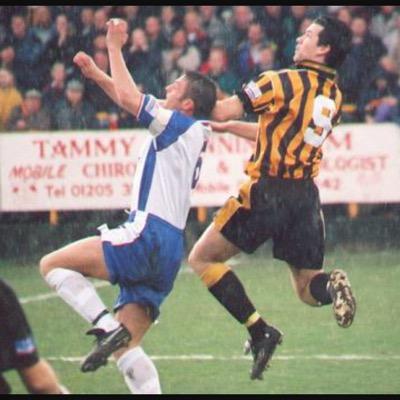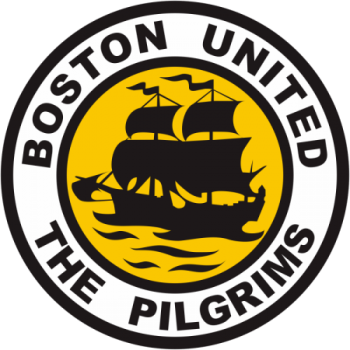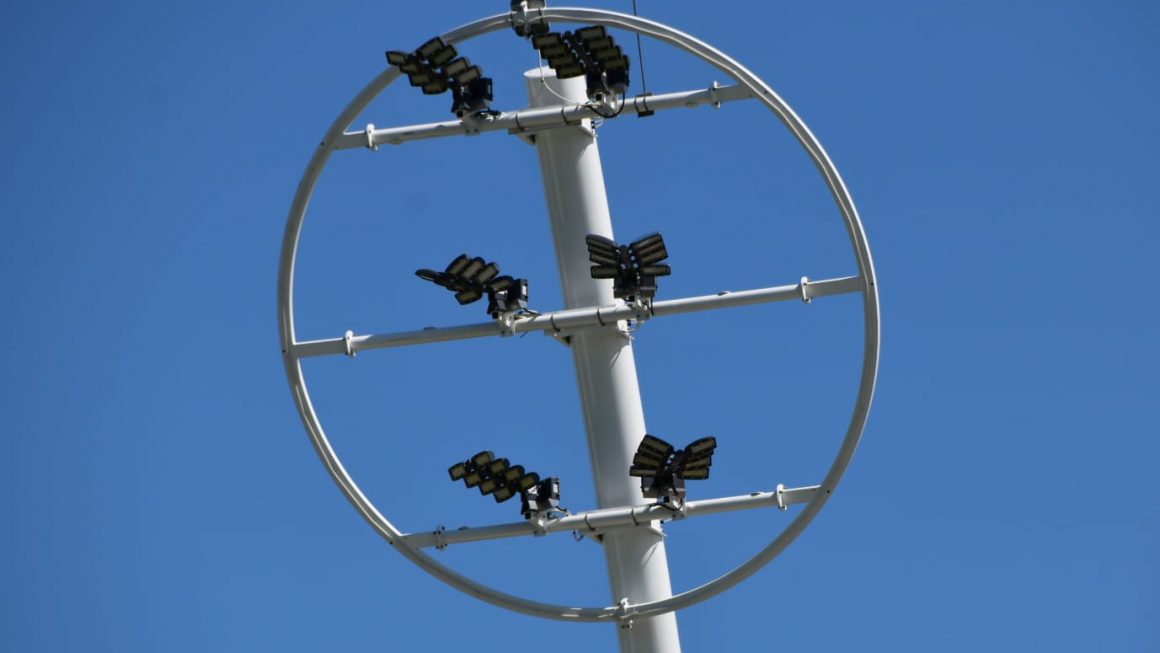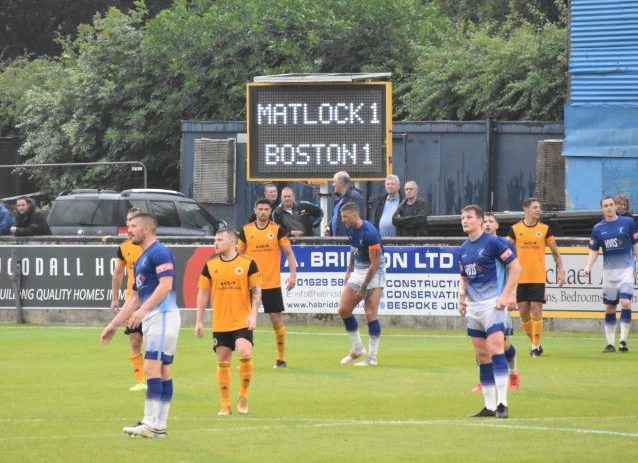A cold, grim night in Ilkeston. The clock said 83. Boston United were playing badly and heading for yet another defeat. Little surprise there: the Boston United of eight years ago were not very good, and the New Manor Ground was a ground no-one ever looked forward to visiting.
The Pilgrims were struggling badly on a frozen pitch that looked more like the glinting tundra of a Waitrose Christmas advert.
The ball didn’t bounce, it crashed.
It was non-league football in all its stereotypical glory. As was Boston United’s bench which, thanks to illness, was an alarming mix of untested kids and tired old legs pressed back into service for one last season.
The set of tired old legs, of course, belonged to United legend Micky Nuttell. At the wrong side of 40, Nuttell’s inclusion on the bench had Ilkeston’s supporters laughing into their pints.
Were Boston that desperate for bodies? Hadn’t Nuttell retired in 1999?
They wouldn’t be laughing for long.
With seven minutes, the call came. The old boy was on. Nuttell strutted onto the pitch like the Terminator, glaring at Boston’s underperforming players with cold menace. Ilkeston probably had no idea who this old guy was.
They were about to find out.
Within three minutes, Nuttell was being lectured by the referee having disagreed with two players using his head. Shortly thereafter, he shoved a few more over and incurred the wrath of Ilkeston’s entire defence for generally not being very nice to them.
Clearly rattled by the arrival of the guy who wasn’t going down without taking a few of them with him, Ilkeston folded, gifting Boston the penalty that would see them leave with a point – Nuttell’s point.
As the teams trudged off, at least one Ilkeston player refused to shake his hand. But, then, he always was good at making enemies.

A few weeks ago, a man drinking alone in a pub – as non-league fans tend to do a lot – overheard me grumbling about Boston United’s start to the season. He introduced himself as a longstanding Marine fan.
He reminisced about the Unibond days, when Marine had won the league. “I loved my trips to Boston,” he said. “What a fantastic club. What a great ground. Great fans.”
But then his eyes narrowed.
“There was just one thing I didn’t like about you lot,” he said, his mood suddenly darkening.
What could it be? Mel Sterland? Had someone slashed his tyres? Was the Batemans off?
“Micky Nuttell!” he declared. “I absolutely loathed that bloke. He were a nasty blighter.”
Replace ‘blighter’ with something completely unprintable, and it is clear Nuttell’s existence still troubles fans who live hundreds of miles away.
Whether Nuttell deserved his reputation is a debate for another time, but what remains are the memories of a player Boston fans loved to have on their team.
A fighter you were glad to have on your side when things got a bit tricky in the middle of nowhere. A disruptor who could turn a sedate game into a pitched battle in seconds.
Players like that disgust the purists, but they are the kind of players supporters turn into cult icons. Players who end up on banners, or who have chants sung at them.
Think of Tony Crane, who endeared himself to Boston fans by being overweight, prone to a little on-pitch violence, but also being really good.
Think of Paul Ellender, who played in a better team, but even that team simply didn’t function as well when he wasn’t around kicking people.
Think of the quite frankly terrifying Martin Filson. Like every single player that ever faced him, I am still haunted by memories of an implausibly big bloke who looked like he could knock out a tank. Filson will probably get booked at his own funeral.
Of players we have battled, think of Tom Denton. Actually, let’s try to forget Tom Denton.
Which brings us to the present day, and Gregg Smith, whose two year contract is one of the few bits of good news to emerge from what has been a desperately disappointing season for the Pilgrims.
While that seems like rubbish praise, a bit like calling someone the least bad thing in a Ben Elton sitcom, Gregg Smith’s performances have been so towering – quite literally – that he alone has probably ensured the season hasn’t been even worse.
And, as a happy consequence, he is slowly winning back the hearts and minds of fans who were set to abandon the team as a lost cause.
Like Nuttell, Smith doesn’t care if anyone likes him. He just wants to win. But Smith’s game, like his spiritual predecessors, is grounded on more than just ‘passion’, or ‘desire’ – those pointless, depressing traits too many supporters spend too long obsessing over.
Aside from the small matter of actually being a decent footballer, it’s about playing – and winning – the little games that play out on the pitch, the subtle battles of mental and physical attrition that occur under the referee’s nose.
Smith’s combination of all of that – his constant fury, his physicality, his unpleasant attitude towards anyone who gets in his way – is exactly what this side needs.
Of course, while it feels unfair to distil the collective efforts of a whole club and channel its immediate prospects through the fortunes of one man, that’s where we are at with this Boston side.
Is that overstating his importance? We’ll see. There is still much football to play, and more players to come in – and out – of this fluid squad.
Even so, we’ve already seen enough of Smith to know he will linger long in the memory.
A player who, like Nuttell did on that cold night in Nottinghamshire, can spur a struggling side to small victories you can build a season on.
And you never know: 10 years from now, it might be you getting tapped on the shoulder by a stranger eager to tell you just how much they hated Gregg Smith.
This article originally appeared in The Boston Standard



